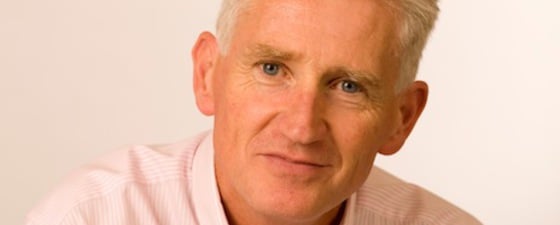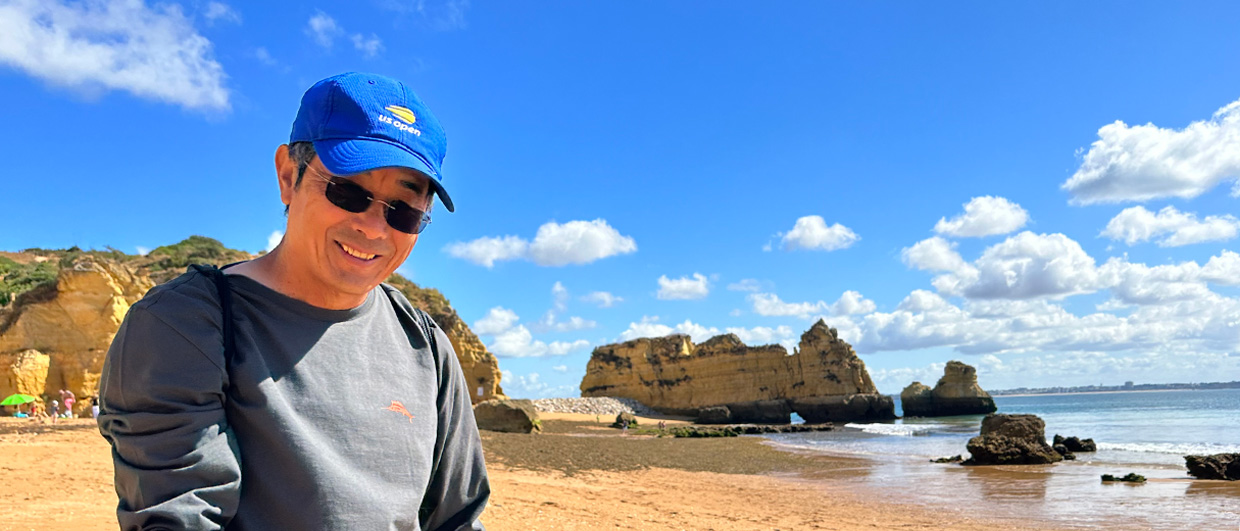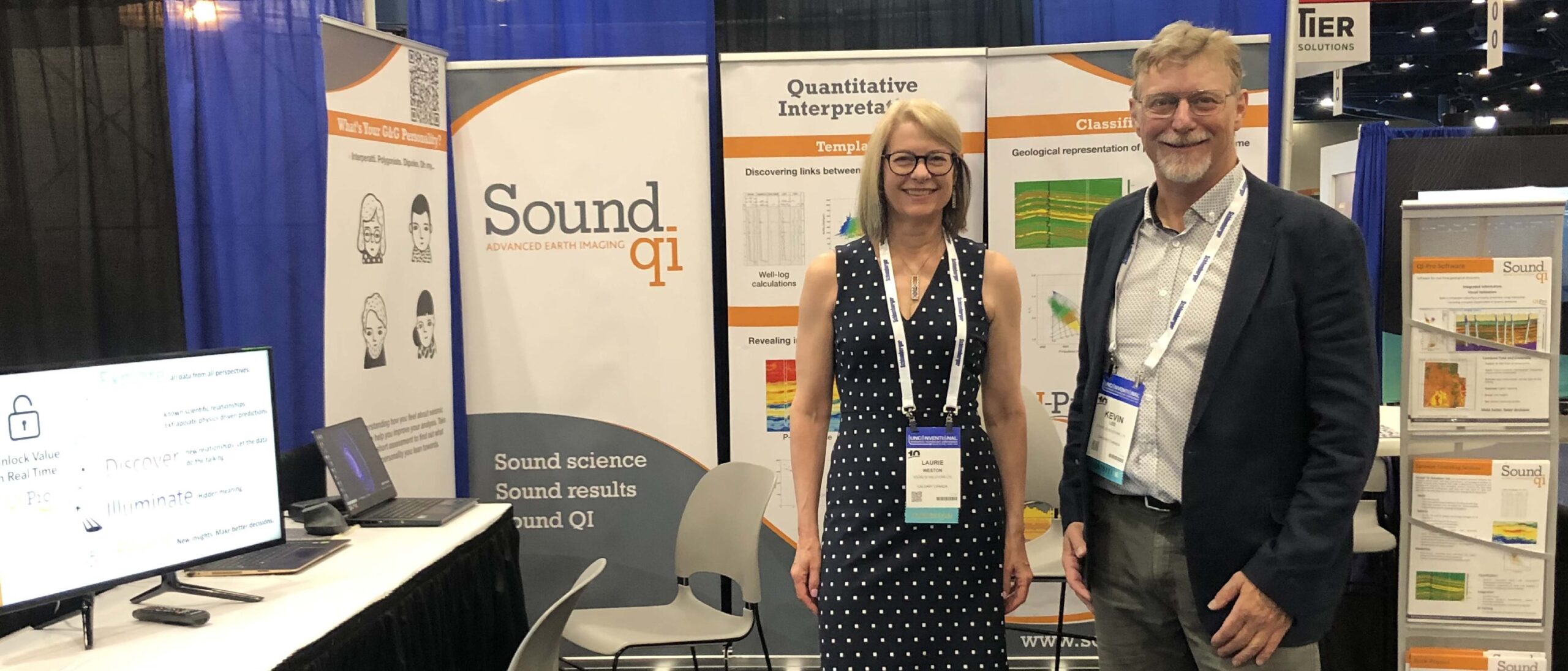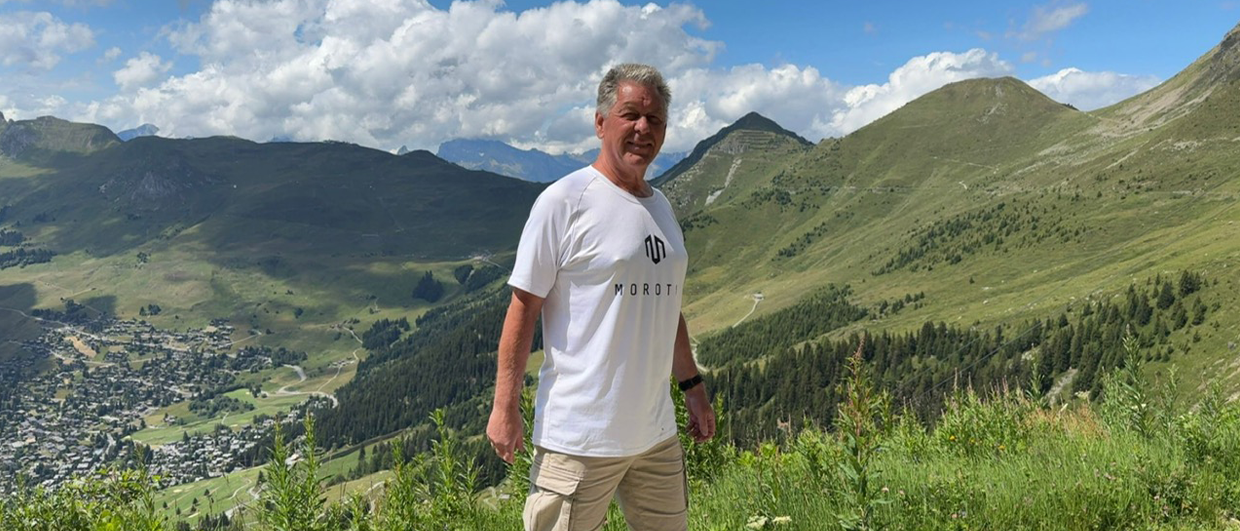“What really gets me up in the morning is the thought of finding something new,” says Malcolm Brown, Vice President, Exploration and Technology for BG Group, explaining why he still loves the career he commenced over 30 years ago. “Exploration is always a big gamble; you create your play, based on analogues, apply for acreage, but then you have to be brave and drill. It’s like being a detective, trying to work out what happened sequentially a hundred million years or more ago. Obviously, there’s a lot of high-tech science and software involved, and you have to overlay the commercial and competitive elements – we’re competing with some pretty big companies out there. But ultimately it’s about finding the code to unlock buried treasure. It often doesn’t work out, but I still find it fun.”
A Good Investment
Like many young geologists who graduated in the ’70s, Malcolm did not necessarily envisage a career in the oil industry. “I decided to study geology because I was fascinated by plate tectonics, which was only just coming to the fore,” he explains. “After my first degree at Kingston Polytechnic, there were not many jobs around except in the expanding oil industry, so I joined GibCo as a mudlogger – the lowest form of geological life! I worked in the Libyan desert; it was tough, but fun, and I formed some great friendships – we still have reunions. After a couple of years I moved to Saudi and worked in directional surveying; driving to rigs all over the desert, getting there and back and getting the job done, it seemed exciting work with a lot of responsibility for a young man.”
Malcolm believes that such early, field-based experience gives young graduates a good grounding and introduction to the hydrocarbon industry, particularly if it is then cemented by a further qualification – in his case, a Masters degree in Petroleum Geology at Imperial College in London. “It was the best investment I ever made in myself,” Malcolm says. “It gave me an excellent grounding in the basics of finding oil and gas, and BG Group still employ several people each year from that and similar courses. We find first degrees in Geology are too general and therefore tend to take on people with further degrees, either MScs or PhDs. We also like it if someone has basic industry experience as it makes them more focused and mature.”
On leaving Imperial College, jobs in exploration were scarce, and Malcolm joined the nationalised UK company British Gas, which concentrating on selling and distributing gas, with a very small and totally UK-oriented E&P arm. He thought he’d stay just a short while; 30 years and several company transformations and name-changes later, he’s still there.
Varied Roles
Malcolm takes up the story. “In 1986 British Gas was privatised, meaning that we were able to look overseas for exploration opportunities and expand back into oil. We bought the Houston based oil company Tenneco International in 1988, which had a portfolio of ten countries. I spent from 1991 to 1994 there as Exploration Manager covering West Africa and latterly South America. When I returned home, the company was going through a period of considerable change, with the first of two demergers. The gas distribution arm eventually became owned by Centrica, and E&P and the international gas business was reincarnated as BG Group.
“This came with a great opportunity for me as I was appointed Exploration Director, although, unfortunately, my first job was to reduce my staff by 40% – a hard task. However, we were able to high grade the portfolio and, despite being small, we then enjoyed five very successful years, during which time we had major discoveries, such as West Delta Deep in Egypt, Kashagan in Kazakhstan, as well as important finds in Indonesia, Bolivia and Trinidad.”
Malcolm’s next role, in 2000, was Asset General Manager running BG Group’s Central North Sea fields, which included Armada, Everest and Lomond. He found the move into production interesting, but admits that he missed the excitement of exploration. “Production is often about looking back, fixing what has just broken, and I enjoy looking forward, so it didn’t suit me so well.
“I then moved into a senior ‘corporate’ role, concentrating on HSSE,” he continues. “This was also interesting, giving me some different and very valuable insights into the business – again, trying to make tomorrow better! However, it never replaced the exploration ‘buzz’ for me, so in 2005 I returned to lead Exploration, with a worldwide remit.
By this time BG Group had grown considerably and there was a lot to do in terms of refilling the portfolio. In 2006 it drilled its first deepwater subsalt well in the Santos Basin in Brazil with Petrobras. “It was long and difficult, but it unlocked the key and the second well we drilled was the giant Lula discovery. It was all a big gamble, but it paid off and it may all seem very obvious now, but it wasn’t always at the time! For all the recent good plays, like sub-salt Brazil, offshore Ghana or now Tanzania, technological developments have been important, but so too has been the willingness to test accepted logic.
“I think a mixed range of assets is vital for successful growth,” Malcolm adds. “Our portfolio has broadened; it still has a large proportion of gas, though the major oil reserves from Brazil will form an increasing percentage of our production. The key part of our unconventional portfolio is coal seam gas in Australia, which accesses international LNG prices. Market is crucial – companies must always be market driven”.
Biggest Challenge
 In his spare time Malcolm Brown enjoys mountain-biking, running and travelling, and often takes his bike with him on his travels.In common with many people, Malcolm believes the biggest challenge facing the industry is successfully bringing on the next generation of geoscientists and engineers. He is proud of the fact that BG Group has a 90% retention rate over 10 years for geology and geophysics recruits to its graduate scheme, which has been running for almost 20 years. “I think that while we are a growing company, which is fun and stimulating, we are still small and entrepreneurial enough for each person to feel they can make a difference,” he says. “We employ 350 geologists and geophysicists in about 15 different countries and about half of these do not originate from the UK. We actively try to take graduates from the countries where we work, often sponsoring them through further degrees.
In his spare time Malcolm Brown enjoys mountain-biking, running and travelling, and often takes his bike with him on his travels.In common with many people, Malcolm believes the biggest challenge facing the industry is successfully bringing on the next generation of geoscientists and engineers. He is proud of the fact that BG Group has a 90% retention rate over 10 years for geology and geophysics recruits to its graduate scheme, which has been running for almost 20 years. “I think that while we are a growing company, which is fun and stimulating, we are still small and entrepreneurial enough for each person to feel they can make a difference,” he says. “We employ 350 geologists and geophysicists in about 15 different countries and about half of these do not originate from the UK. We actively try to take graduates from the countries where we work, often sponsoring them through further degrees.
“My advice to young geoscientists is to go overseas and get experience in a range of branches of the industry. That’s what we do to all our young graduates. The average geologist in an oil company doesn’t spend enough time on rigs or with seismic crews, as it is important for them to see where the data comes from and the issues involved in its acquisition. They should also experience living and working in a foreign country.”
Having worked for the company for a relatively long time, Malcolm enjoys seeing the fruits of this carefully planned graduate training system. “It’s good to see people we took on as young graduates fifteen years ago now thriving as excellent exploration managers.”
Transforming Lives
In 2011 Malcolm Brown was awarded the Silver Medal of the Petroleum Group of the Geological Society of London, which is a yearly award presented to individuals with a geoscience background who have made outstanding contributions to the petroleum industry. ”I was very flattered to receive this,” he says, “because a number of people for whom I have great respect, such as Bob Stoneley and Malcolm Pattinson, were previous recipients. Having been in the industry for a long time, it was an honour to follow in their footsteps.”
Malcolm has also been an active member of the Geological Society Council, and is on the advisory board of the Energy and Geoscience Institute (EGI) at the University of Utah. “I enjoy broadening my remit and seeing how the geosciences work outside the oil industry,” he explains. “I also find that extracurricular activities are useful both in learning more about the sciences and for networking. It helps you look at the world afresh. I think there are still whole chunks of it that need a change of paradigm; either the geology isn’t what we had always assumed it to be, or a crucial market change will shed a completely new light on it.
“My whole career with BG Group has been a fantastic experience,” he continues. “It’s a very special company. I have worked with a group of loyal, dedicated people, with great camaraderie, and I like what we’ve done. I love being part of an industry which can make such a difference to people throughout the world. Brazil is a good example, where the major recent discoveries will bring economic benefits to the people and create a technological industry to invest in the future. And look at East Africa. For years it was a backwater; soon it will have a gas export industry, creating long term employment and major revenues for the host countries, transforming lives forever. It’s hard to get that across to the media, which is partly our fault – we don’t tend to present a coherent story and we need to address that, in order to encourage more young people into the industry.
“Making tomorrow better is what drives me, and that is what we do,” Malcolm concludes. “I’m proud to be involved in this amazing industry.”





